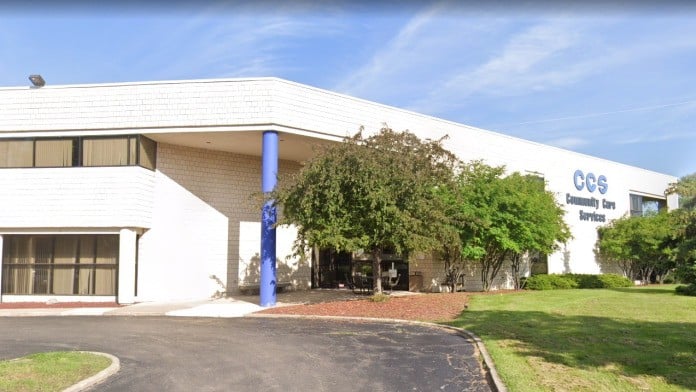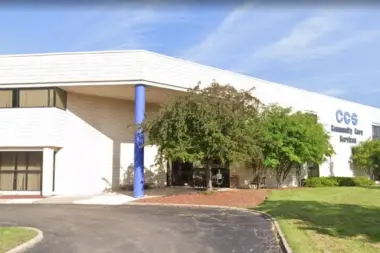About Community Care Services – 26184 West Outer Drive
Located in Lincoln Park, Michigan, is the Community Care Services Clinic. This is a medical facility that provides outpatient support specifically for adolescents who are struggling with drug or alcohol use. They also offer other services that address issues like anger management, relapse prevention and specialized addiction. If you’re struggling with a mental health disorder or have other co-occurring struggles at play, you’ll find supportive care here as well.
Medication Assisted Treatment
Chemical addictions, including dependencies on alcohol and opioids, can require medical intervention if your body has been addicted for extended periods of time. At Community Care services, medication assisted treatment (MAT) is available to you. This will be used alongside counseling to help provide wraparound support that will lay the groundwork for success.
Specialized Counseling Services
Their counseling program uses the latest evidence based therapies to help you work through challenges. Approaches like cognitive behavioral therapy allow you to explore strategies and coping techniques that help shape positive behavior habits that can help you maintain your sobriety.
Other approaches like motivational interviewing encourage you to think about past behaviors, set recovery goals and learn new behaviors that will help you improve aspects of your wellness. This might include helping you improve your sense of self, improving your self confidence or helping you recognize that there are ways for you to successfully work toward your recovery goals.
Dual Diagnosis Support
Very often, addiction struggles are accompanied by other co-occurring mental health challenges. Community Care Services is ready to support you with the integrated mental health counseling you need to address all factors that are contributing to your addiction struggles.
Latest Reviews
Rehab Score
Gallery


Accepted Insurance

Other Forms of Payment
Medicaid is a state based program that helps lower-income individuals and families pay for healthcare. Medicaid covers addiction treatment so those enrolled can use their coverage to pay for rehab. When a program accepts Medicaid the client often pays very little or nothing out of their own pocket.
Private insurance refers to any kind of healthcare coverage that isn't from the state or federal government. This includes individual and family plans offered by an employer or purchased from the Insurance Marketplace. Every plan will have different requirements and out of pocket costs so be sure to get the full details before you start treatment.
Self-pay involves paying for treatment out of your own pocket. You can use savings or credit, get a personal loan, or receive help from family and friends to fund your treatment. If you don't have insurance or your insurance plan doesn't cover a specific program, self-pay can help ensure you still get the care you need.
Medicare is a federal program that provides health insurance for those 65 and older. It also serves people under 65 with chronic and disabling health challenges. To use Medicare for addiction treatment you need to find a program that accepts Medicare and is in network with your plan. Out of pocket costs and preauthorization requirements vary, so always check with your provider.
Military members, veterans, and eligible dependents have access to specific insurance programs that help them get the care they need. TRICARE and VA insurance can help you access low cost or no cost addiction and mental health treatment. Programs that accept military insurance often have targeted treatment focused on the unique challenges military members, veterans, and their families face.
Addiction Treatments
Levels of Care
Outpatient counseling services are available for adults, teens and children. They offer the option of individual, family, or group counseling. Outpatient counseling enhances an individual’s ability to cope with life stress, manage their illness and make productive life choices. Together with a therapist a patient will design a treatment plan and establish recovery and wellness goals. Your therapist will recommend frequency and duration of counseling session.
At certain points in the recovery process, it's important to have support available 24/7. 24-hour clinical care offers a safe environment in which to recover from drug or alcohol addiction in peace, knowing medical detox and other treatment will happen with professionals on hand.
The Women’s Intensive Outpatient Program is designed for women in early recovery from substance abuse. Available to women 18 years or older, this program helps develop the skills needed to maintain a drug and alcohol free lifestyle. Special focus is given to building self-esteem; developing interpersonal relationships; recovering from physical, psychological and sexual abuse; and strengthening parenting and life skills.
Your road to wellness continues even after you reach your recovery goals. They offer a variety of community based programs and services that help individuals maintain wellness. Their education and employment programs provide participants the support they need to further their education and secure meaningful employment. In addition, their Turning Point Clubhouse, a psychosocial rehabilitation program, provides members with a safe, supportive environment to develop life management and transitional employment skills.
Clients in inpatient rehab reside at the treatment facility while engaging in intensive daily treatment. Inpatient care is primarily designed for clients leaving detox, those in early recovery, and those at an elevated risk of relapse. Clients participate in intensive addiction counseling, which may include group and family therapy as well as one-on-one sessions. Recovery-focused life skills training is also often prioritized. Many inpatient rehabs offer evidence-based complementary therapies, such as yoga, meditation, art therapy, and animal therapy.
Treatments
The goal of treatment for alcoholism is abstinence. Those with poor social support, poor motivation, or psychiatric disorders tend to relapse within a few years of treatment. For these people, success is measured by longer periods of abstinence, reduced use of alcohol, better health, and improved social functioning. Recovery and Maintenance are usually based on 12 step programs and AA meetings.
Drug rehab in Michigan provides personalized treatment to help individuals break this cycle and regain control of their lives. Treatment methods are used in various levels of care, including inpatient rehab, partial hospitalization programs, intensive outpatient programs, and standard outpatient treatment.
Dual diagnosis outpatient counseling services are available to adults and teens that have both a mental health and substance use disorder diagnosis. A treatment plan will be designed to reach recovery and wellness goals. Services include psychiatric evaluations; nursing services; medication review and monitoring; and post hospital and aftercare treatment.
A combined mental health and substance abuse rehab has the staff and resources available to handle individuals with both mental health and substance abuse issues. It can be challenging to determine where a specific symptom stems from (a mental health issue or an issue related to substance abuse), so mental health and substance abuse professionals are helpful in detangling symptoms and keeping treatment on track.
Opioid rehabs specialize in supporting those recovering from opioid addiction. They treat those suffering from addiction to illegal opioids like heroin, as well as prescription drugs like oxycodone. These centers typically combine both physical as well as mental and emotional support to help stop addiction. Physical support often includes medical detox and subsequent medical support (including medication), and mental support includes in-depth therapy to address the underlying causes of addiction.
Programs
Adult rehab programs include therapies tailored to each client's specific needs, goals, and recovery progress. They are tailored to the specific challenges adult clients may face, including family and work pressures and commitments. From inpatient and residential treatment to various levels of outpatient services, there are many options available. Some facilities also help adults work through co-occurring conditions, like anxiety, that can accompany addiction.
Young adulthood can be an exciting, yet difficult, time of transition. Individuals in their late teens to mid-20s face unique stressors related to school, jobs, families, and social circles, which can lead to a rise in substance use. Rehab centers with dedicated young adult programs will include activities and amenities that cater to this age group, with an emphasis on specialized counseling, peer socialization, and ongoing aftercare.
Recovery is most successful when clients feel accepted and validated by their peers and treatment providers. Facilities that offer LGBTQ-inclusive programming are committed to creating a safe space where everyone can grow and recover without fear of judgment or discrimination. They will have dedicated policies in place to create a safe and supportive environment that fosters free expression.
Clinical Services
They believe helping children thrive is everyone’s responsibility, but families should be in the driver’s seat. They work closely with families and they collaborate with schools and other community agencies as needed. Their CCS staff receives continuous training on the best treatments and services to meet the needs of children with mild through severe emotional and/or behavioral problems.
Group therapy is any therapeutic work that happens in a group (not one-on-one). There are a number of different group therapy modalities, including support groups, experiential therapy, psycho-education, and more. Group therapy involves treatment as well as processing interaction between group members.
In individual therapy, a patient meets one-on-one with a trained psychologist or counselor. Therapy is a pivotal part of effective substance abuse treatment, as it often covers root causes of addiction, including challenges faced by the patient in their social, family, and work/school life.
Life skills trainings involve all the skills a person must have in order to function successfully in the world. These include time management, career guidance, money management, and effective communication. Truly successful addiction recovery is based on the ability to not only live substance-free, but to thrive. Life skills teaches the practical necessities of functioning in society, which sets clients up for success in life, and therefore sobriety.
Trauma therapy addresses traumatic incidents from a client's past that are likely affecting their present-day experience. Trauma is often one of the primary triggers and potential causes of addiction, and can stem from child sexual abuse, domestic violence, having a parent with a mental illness, losing one or both parents at a young age, teenage or adult sexual assault, or any number of other factors. The purpose of trauma therapy is to allow a patient to process trauma and move through and past it, with the help of trained and compassionate mental health professionals.
Amenities
-
Residential Setting
-
Private Setting
-
Private Rooms
Staff & Accreditations
Staff
Carol Zuniga
CEO
Edward L. Forry
President
Andrew Gilroy
CFO
Michael Wunder
CIO
Susan Kozak
COO
Todd Harrison
Chief Human Resources Officer
Jody Drewry, LMSW
Sr. Director of Crisis Services
Jill Blackson
Sr. Clinical Director
Timothy Chapman, MD, MBA
Medical Director
Philip Gilly, SUD
Medical Director
Accreditations

The Joint Commission, formerly known as JCAHO, is a nonprofit organization that accredits rehab organizations and programs. Founded in 1951, the Joint Commision's mission is to improve the quality of patient care and demonstrating the quality of patient care.
Joint Commission Accreditation: Yes
Contact Information
26184 Outer Drive
Lincoln Park MI, 48146






